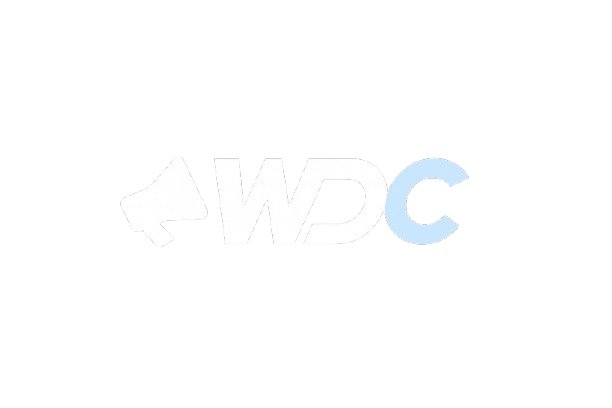In today’s fast-paced digital landscape, businesses are under constant pressure to innovate, scale, and adapt quickly to market changes. One technology trend that has transformed how companies operate is cloud-based applications. From small startups to large enterprises, organizations are shifting away from traditional on-premises software and embracing the cloud to gain flexibility, efficiency, and cost savings.
At WDC, we’ve seen firsthand how cloud-based solutions can redefine business operations — enabling companies to work smarter, deliver faster, and remain competitive. In this article, we’ll explore why businesses are investing in cloud-based applications, the benefits they deliver, and how you can make the transition smoothly.
1. What Are Cloud-Based Applications?
Cloud-based applications (often referred to as cloud apps) are software programs that run on remote servers and are delivered to users over the internet. Unlike traditional desktop applications, cloud apps store data and processing power in secure data centers, not on local machines.
Examples include:
- Google Workspace (Docs, Sheets, Gmail)
- Microsoft 365
- Slack
- Salesforce
- Custom-built cloud applications
These solutions can be accessed anytime, anywhere — as long as you have an internet connection.
2. Key Reasons Businesses Are Moving to the Cloud
a) Scalability on Demand
One of the most compelling reasons companies choose cloud-based applications is scalability. Whether you’re a small startup or a multinational corporation, cloud platforms allow you to scale resources up or down instantly based on your needs — without investing in expensive hardware.
At WDC, we’ve helped clients develop applications that automatically adjust server capacity during high traffic periods, ensuring consistent performance without unnecessary costs.
b) Cost Efficiency
Traditional software often requires substantial upfront investments in infrastructure, licenses, and IT staff. Cloud-based solutions work on a subscription or pay-as-you-go model, significantly reducing capital expenditure.
Moreover, businesses save money on maintenance, updates, and energy consumption, as the cloud provider handles these tasks.
c) Remote Accessibility
With remote work becoming the norm, cloud-based applications enable teams to access data and tools from anywhere. This not only increases flexibility for employees but also ensures that collaboration is seamless, whether your team is in one office or spread across the globe.
d) Enhanced Collaboration
Many cloud applications include built-in collaboration features like real-time editing, file sharing, and instant messaging. For example, a marketing team can simultaneously edit a campaign plan while the sales department updates CRM data — all without emailing files back and forth.
e) Security and Data Protection
Contrary to early misconceptions, reputable cloud providers offer robust security measures such as encryption, multi-factor authentication, and regular security audits. This often surpasses the security most small to mid-sized businesses could afford to implement on their own.
At WDC, we integrate additional layers of security into our cloud solutions, ensuring compliance with industry-specific regulations like GDPR and HIPAA.
f) Faster Deployment and Updates
Deploying traditional software can take weeks or months. Cloud-based applications can be rolled out in a fraction of that time. Plus, updates and new features are delivered automatically — without downtime or manual installations.
g) Disaster Recovery and Backup
Cloud platforms typically include automated backups and disaster recovery features, ensuring business continuity even during unexpected outages, cyberattacks, or natural disasters.
3. Industries Driving the Cloud Adoption Boom
Cloud adoption isn’t limited to tech companies. Some industries leading the shift include:
- Healthcare – Using cloud apps for patient record management, telemedicine, and compliance tracking.
- Retail & E-commerce – Managing inventory, customer data, and online stores through integrated cloud systems.
- Finance – Handling transactions, analytics, and compliance in secure cloud environments.
- Education – Delivering remote learning platforms and virtual classrooms.
4. How WDC Helps Businesses Leverage Cloud Applications
At WDC, we specialize in designing, developing, and deploying custom cloud-based applications tailored to your business goals. Our services include:
- Cloud Migration – Moving your existing systems to the cloud with minimal disruption.
- Custom App Development – Creating secure, scalable cloud solutions from scratch.
- API Integrations – Connecting your cloud app with other business tools for seamless workflows.
- Ongoing Support & Optimization – Ensuring your application stays fast, secure, and up to date.
We focus on delivering solutions that not only meet today’s needs but also prepare your business for the future.
5. Getting Started with Cloud-Based Applications
If you’re considering investing in cloud-based applications, here’s a simple roadmap:
- Assess Your Needs – Identify business challenges and goals.
- Choose the Right Cloud Model – Public, private, or hybrid cloud.
- Select a Provider – Evaluate reliability, security, and scalability.
- Plan the Migration – Outline steps to move data and applications.
- Train Your Team – Ensure smooth adoption and usage.
Conclusion
The shift toward cloud-based applications is not just a tech trend — it’s a business transformation. From cost savings and scalability to enhanced security and collaboration, the cloud empowers companies to operate more efficiently and innovate faster.
At WDC, we help businesses harness the full potential of cloud technology by creating custom, secure, and future-ready applications. If your business is ready to make the move, we’re here to guide you every step of the way.
FAQs
1. Are cloud-based applications secure?
Yes — reputable providers offer high-level security measures, and at WDC, we add custom security layers to meet your specific industry needs.
2. How much does it cost to move to the cloud?
Costs vary depending on the complexity of your systems and required features. Many businesses find the subscription model far more cost-effective than traditional setups.
3. What if my internet goes down?
Most cloud applications offer offline modes, and data will sync automatically once the connection is restored.
4. Can WDC build a custom cloud application for my business?
Absolutely. We specialize in developing tailor-made cloud apps designed around your workflows and goals.
5. Is cloud migration disruptive to daily operations?
With proper planning, downtime is minimal. WDC ensures a smooth migration process with little to no impact on productivity.

